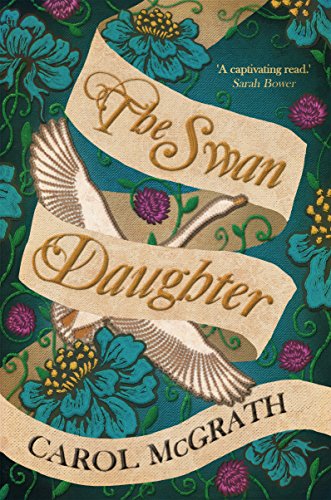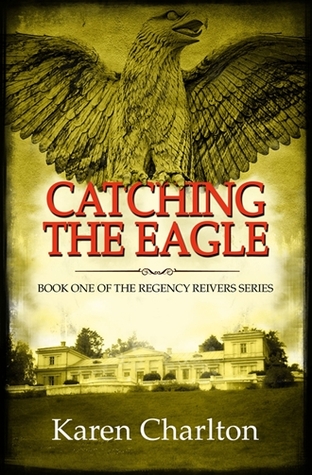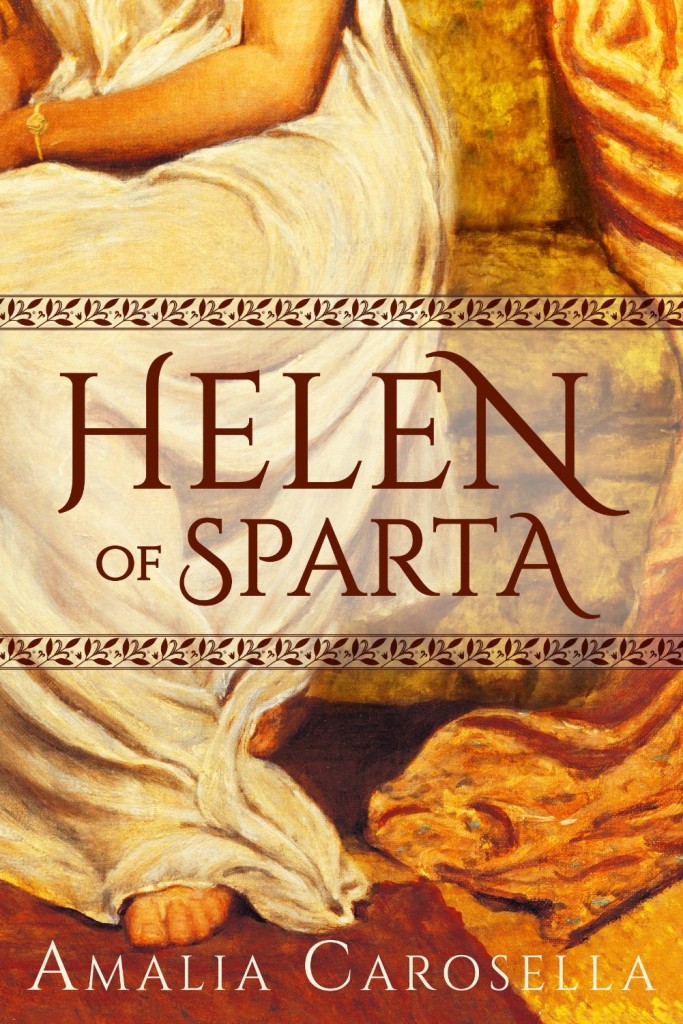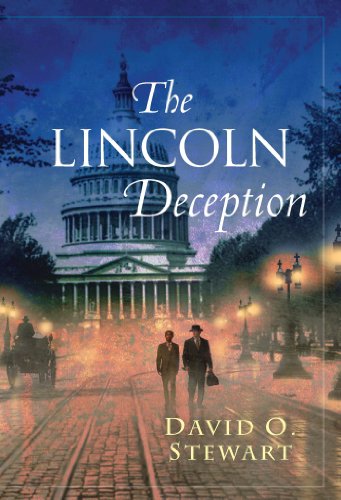Please join author Amalia Carosella as she tours the blogosphere with HF Virtual Book Tours for Helen of Sparta, from April 1-22.
Publication Date: April 1, 2015
Lake Union Publishing
Formats: eBook, Paperback
ISBN-10: 1477821384
Genre: Historical Fiction

Long before she ran away with Paris to Troy, Helen of Sparta was haunted by nightmares of a burning city under siege. These dreams foretold impending war—a war that only Helen has the power to avert. To do so, she must defy her family and betray her betrothed by fleeing the palace in the dead of night. In need of protection, she finds shelter and comfort in the arms of Theseus, son of Poseidon. With Theseus at her side, she believes she can escape her destiny. But at every turn, new dangers—violence, betrayal, extortion, threat of war—thwart Helen’s plans and bar her path. Still, she refuses to bend to the will of the gods.
A new take on an ancient myth, Helen of Sparta is the story of one woman determined to decide her own fate.
My Review
In Greek mythology, before the infamous Trojan War, Helen of Sparta was abducted by Theseus, King of Athens. Based in legend, this novel approaches Helen's 'abduction' with a new take on it, with Helen as a willing participant.
First, I think it should be noted that in my opinion, this is more like historical fantasy than straight up historical fiction. While it's not being marketed that way, there's several usages of magical or mystical powers, and actual Greek gods and goddesses play large roles in the storyline. Not as the characters' belief system, but as the gods and goddesses making actual appearances and interacting with the mortal characters. While that in itself didn't bother me, I felt as though there was too much being explained away by these influences, rather than by providing the characters with good reasons for their choices..
I really wanted to like this tale of the face that launched a thousand ships, because it focused on a less infamous period of Helen's life and I thought it would allow for more character development and let us get to know Helen and other characters and what would motivate their later choices. While it is well written with good descriptions, unfortunately, the characters are rather flat and there were too many times when I felt like their behavior or decisions just didn't make any sense. For example, Helen is worried that Menelaus will rape her and then she'll be forced to marry him - this part didn't bother me since it's true in history that a violated woman would be forced to marry her rapist to save her "honor". What troubled me was that if Helen was so desperate to escape marrying Menelaus, and so prepared to run away with Theseus, why not just claim Theseus raped her (or better yet, sleep with him and then claim it was rape) so then they would be "forced" to marry? As escape plans go, wouldn't this be a lot easier than an elaborate plan to slip away in the night, hid her on his ship, and then come up with a fake identity once in Athens? I understand the whole premise of the story is a twist on Helen's abduction so she needed some reason to run away with Theseus, but if you can't explain why the characters didn't chose a different, more logical, seemingly easier route, the whole concept falls apart.
I also struggled to understand why a princess was so often alone, or wandering the palace unescorted especially when it was full of suitors lusting after her. More than once she is told off for it yet she keeps doing it, even after experiencing unwanted attention when caught out on her own. The one time she does attempt to avoid crossing the palace alone at night, instead of just finding someone to escort her back to her quarters, she stays with her guests until so late at night she is literally nodding off. She has maids and servants, and there's no reason she wouldn't have one with her to see her back to her room.
I could go on with more, greater examples of such illogical behavior but I don't wish to add spoilers. Suffice to say, there was too much in this that didn't make sense or felt contrived for the sake of the plot or scene.
On top of that, I did not find the characters inspiring. Theseus has little depth and serves only as protector, while Helen defines the role of damsel in distress. Though it took guts to abandon and leave behind her whole world, she spends half the time in fearful frets and collapsing into Theseus's arms.
The biggest criticism I'm seeing from other reviews is that the ending is something of a cliffhanger, that it ends too suddenly without closure. I did not feel this to be the case because if you are familiar with the legend of the Trojan War and Helen's story, you know what comes next. The ending was supposed to show the reader why Helen later makes the fateful choice she does, igniting the Trojan War, which it does do. Perhaps it wasn't wise for the author to write a novel that, in the end, only suited people who are already familiar with Helen's story, but that doesn't mean I would say the ending is poor.
So there's definitely some good elements to the story since I was compelled to see the story through to the end, and it's well written, but unfortunately the characters let it down.
Buy the Book
Amazon
Barnes & Noble
 About the Author
About the Author
Amalia Carosella graduated from the University of North Dakota with a bachelors degree in Classical Studies and English. An avid reader and former bookseller, she writes about old heroes and older gods. She lives with her husband in upstate New York and dreams of the day she will own goats (and maybe even a horse, too). For more information, visit her blog at
www.amaliacarosella.com. She also writes fantasy and paranormal romance as Amalia Dillin.
You can also connect with Amalia on
Facebook,
Goodreads, and Twitter
here and
here.
Helen of Sparta Blog Tour Schedule
Wednesday, April 1
Review at
Unshelfish
Review at
Let Them Read Books
Thursday, April 2
Review at
Flashlight Commentary
Friday, April 3
Interview at
Flashlight Commentary
Saturday, April 4
Review at
History From a Woman's Perspective
Monday, April 6
Review at
Curling Up By the Fire
Spotlight at
A Literary Vacation
Tuesday, April 7
Spotlight at
leeanna.com
Wednesday, April 8
Review at
Historical Readings and Reviews
Thursday, April 9
Review at
Oh, For the Hook of a Book!
Friday, April 10
Review at
With Her Nose Stuck in a Book
Monday, April 13
Interview at
Book Babe
Spotlight at
Historical Fiction Obsession
Tuesday, April 14
Review at
Forever Ashley
Wednesday, April 15
Review at
Just One More Chapter
Spotlight at
CelticLady's Reviews
Thursday, April 16
Review at
100 Pages a Day
Friday, April 17
Review at
Impressions in Ink
Saturday, April 18
Spotlight at
Passages to the Past
Monday, April 20
Review at
Book Lovers Paradise
Interview at
The Maiden's Court
Tuesday, April 21
Review at
Broken Teepee
Wednesday, April 22
Review at
Ageless Pages Reviews
























